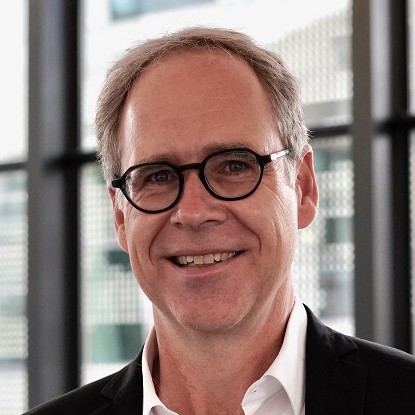Professor Dr Yan Zhang
Age: 36
My research areas: Ferroelectric ceramic and its application in actuation, sensing and energy harvesting.
Name of my University / Research Institute: Key Laboratory of Powder Metallurgy, Central South University, China
Research period at the TU Darmstadt: May 2022 to July 2024 (9 months in total)
Programme: Humboldt Research Fellowship Programme for Experienced Researchers
My field of research is fascinating. The best way to explain it to non-specialists is…
Ferroelectric materials have an electrical polarity that can be reversed by the application of an electric field. The polarisation can lead to a layer of bound polarisation charge on the surface of the material, and free charges (ions or electrons) are attracted to the charged surface to form a layer of unbound screening charges with opposite polarity. Both the mechanical vibration and thermal fluctuation can change the polarisation and then convert mechanical and thermal energy into electric energy, which can be used for sensor, actuator and energy harvester, etc.
What research questions are you currently working on?
My current research focuses on regulation of ferroelectric ceramics for improved polarisation and the work conducted in TU Darmstadt with the host of Professor Jürgen Rödel is dislocation engineering in ferroelectric ceramics for polarisation catalysis. At high dislocation density, an enhanced remnant polarization with a reduced coercive field can be achieved, which would be beneficial to generate more surface bound charges for the piezo-/pyro-catalytic reactions.
My most important success in research to date is…
Efficient and low-cost utilization of the low-grade mechanical and thermal energy is critical to imminent energy and environmental challenges. Ferroelectric materials with significant potential have been utilised for the conversion of vibration and heat into electricity based on piezoelectric and pyroelectric effects. We’ve designed and fabricated porous ferroelectric ceramics with aligned pore channel exhibited the better mechanical and thermal energy harvesting capability than those of the random porous and dense counterparts.
I became a researcher because …
Research can tackle the scientific challenges of our daily life, push the frontiers of knowledge and discovery to shape a better future of the society and world. Researchers who are doing the above research can share ideas, expertise and technology to find answers to the scientific questions and tackle global challenges. The critical thinking and analytical skills gained during the problem solving as a researcher can facilitate to broaden my vision, boost my self-confidence and achieve self-realization.
I have chosen TU Darmstadt because …
TU Darmstadt is the leading research-oriented university in the Rhein-Main area of Germany with high international reputation for research and knowledge transfer. TU Darmstadt has brilliant research groups in my research area with an environment that sparks innovation, where the group lead and members who are committed to academic rigour, cutting-edge research, and interdisciplinary collaboration. TU Darmstadt is a home to a diverse community of researchers all over the world.
Questionnaire for the host
Guest of: Professor Dr Jürgen Rödel
Department: Department of Materials and Earth Sciences
What did you appreciate most about your guest, or what is it that impressed you most favorably…
Yan reveals great curiosity and is keen to inquire until it is completely clear. In doing so, she unveils new opportunities in new unchartered research areas.
You, your team, and TU Darmstadt benefit from your guest’s…
We have created a completely new research field termed “dislocation-tuned functionality in ceramics” and we are very much aware that it will offer many new opportunities to produce new electrical, thermal and mechanical properties. But it also offers new methods in catalysis, which is a field we do not cover and did not have such excellent partners as Yan and her team offers.





